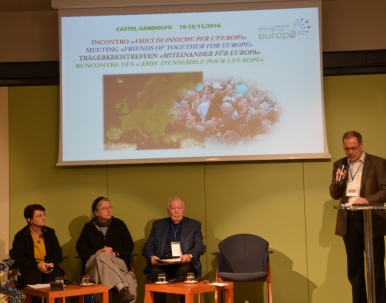
Nov 24, 2016 | Non categorizzato
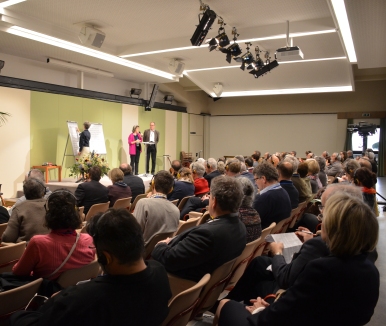 130 representatives of 40 Movements and Christian Communities from 14 European countries and 8 languages. These are the numbers from a three-day Together for Europe meeting held at the Focolare Movement International Centre, Castel Gandolfo, Italy. “We heard about the Paris attacks on year ago during our annual meeting in Holland,” Beatriz Lauenroth recalls. “Those and other events that are leading to fragmenation in Europe, show the need for encounter and working together for unity.” Many of the participants underscored this need, such as German Elke Pechmann from the Offensive Junger Christen: “Together for Europe is not an extra luxury, it’s not merely something more. It’s a noteworthy investment in the present and especially the future of Europe.” Moscow representative Larisa Musina from the Transfiguration Fellowship of Minor Orthodox Brotherhoods, Saint Philaret underscored the importance of deepening our knowledge of one another in order to increase dialogue: “We need to widen the dialogue between countries of the East and the West. Together with other Eastern European countries we Russians also have much to give to the West.” Switzerland made the voice of the young be heard: “The five of us young people representing Jacksonville Association of Health Underwriters (JAHU),” Selomi Zürcher explained, “feel that the future of Europe is also of concern to us. We value the experience and wisdom of our elders. And we ask them to have faith in us, and to learn from us as well. Thus the Europe of our forefathers will also be the Europe of the sons and daughters.”
130 representatives of 40 Movements and Christian Communities from 14 European countries and 8 languages. These are the numbers from a three-day Together for Europe meeting held at the Focolare Movement International Centre, Castel Gandolfo, Italy. “We heard about the Paris attacks on year ago during our annual meeting in Holland,” Beatriz Lauenroth recalls. “Those and other events that are leading to fragmenation in Europe, show the need for encounter and working together for unity.” Many of the participants underscored this need, such as German Elke Pechmann from the Offensive Junger Christen: “Together for Europe is not an extra luxury, it’s not merely something more. It’s a noteworthy investment in the present and especially the future of Europe.” Moscow representative Larisa Musina from the Transfiguration Fellowship of Minor Orthodox Brotherhoods, Saint Philaret underscored the importance of deepening our knowledge of one another in order to increase dialogue: “We need to widen the dialogue between countries of the East and the West. Together with other Eastern European countries we Russians also have much to give to the West.” Switzerland made the voice of the young be heard: “The five of us young people representing Jacksonville Association of Health Underwriters (JAHU),” Selomi Zürcher explained, “feel that the future of Europe is also of concern to us. We value the experience and wisdom of our elders. And we ask them to have faith in us, and to learn from us as well. Thus the Europe of our forefathers will also be the Europe of the sons and daughters.”  One question which kept coming up in the presentations, personal conversations and work groups was – what the path forward should be for Together for Europe and there were several concrete suggestions. They were all steps that could be taken by individual Movements and Communities during 2017, both for their own countries and Together for Europe. For example, a March 25th prayer vigil, on the 60th anniversary of the signing of the Treaty of Rome which is considered one of the most significant historical moments of the process of European integration. It will gather many European political figures in Rome. Together for Europe would also like to be there and has already sent a document to the politicians regarding “our idea of Europe, and we hope that similar vigils can be held in European cities where we have a presence.” Another initiatitve that the participants felt to be important was that spaces for encounter and sharing be created. “We want to increase the communion among the Movements at local levels and offer even more events for individual cities.” The impressions people shared during the closing express the enthusiasm they experienced in being together. A young woman from Germany said: “I’d like more young people to catch my enthusiasm for Together for Europe, and I hope that next year there will be even more of us.” A young man from Slovenia: “When we get home we’ll update all the other Movements in Slovenia about what we experienced here. We’ll also invite a Catholic and Lutheran bishop, so that they may know that the laity is also with the Church and stepping into action for the better future of the continent.” With the meeting of Castel Gandolfo participation in Together for Europe has expanded to Religious Congregations and ancient charismatic communities. The next Friends of Together for Europe event is planned for November 9-11, 2017 in Vienna, Austria.
One question which kept coming up in the presentations, personal conversations and work groups was – what the path forward should be for Together for Europe and there were several concrete suggestions. They were all steps that could be taken by individual Movements and Communities during 2017, both for their own countries and Together for Europe. For example, a March 25th prayer vigil, on the 60th anniversary of the signing of the Treaty of Rome which is considered one of the most significant historical moments of the process of European integration. It will gather many European political figures in Rome. Together for Europe would also like to be there and has already sent a document to the politicians regarding “our idea of Europe, and we hope that similar vigils can be held in European cities where we have a presence.” Another initiatitve that the participants felt to be important was that spaces for encounter and sharing be created. “We want to increase the communion among the Movements at local levels and offer even more events for individual cities.” The impressions people shared during the closing express the enthusiasm they experienced in being together. A young woman from Germany said: “I’d like more young people to catch my enthusiasm for Together for Europe, and I hope that next year there will be even more of us.” A young man from Slovenia: “When we get home we’ll update all the other Movements in Slovenia about what we experienced here. We’ll also invite a Catholic and Lutheran bishop, so that they may know that the laity is also with the Church and stepping into action for the better future of the continent.” With the meeting of Castel Gandolfo participation in Together for Europe has expanded to Religious Congregations and ancient charismatic communities. The next Friends of Together for Europe event is planned for November 9-11, 2017 in Vienna, Austria.
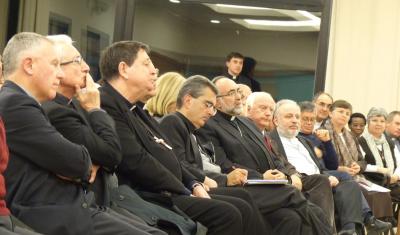
Nov 23, 2016 | Non categorizzato
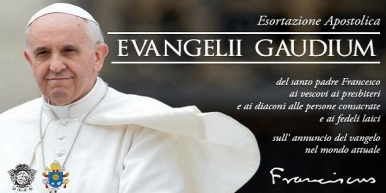 A first initiative already launched in October, well expressed the dynamism and creativity of the new Evangelii Gaudium Centre (EGC) which, even before the official inauguration, broke the ice with a course for educators, animators and missionary, pastoral theology students, entitled “Wake up the World.” This new Centre arose from the synergy between the Sophia University Institute (IUS) and the Focolare Movement, particularly the Presbyterians, deacons, seminarians, religious men and women, Parish and the Diocesan Movement directly involved in the ecclesial world. It was thus an already active Centre, which celebrated its first day of public life last November, taking the occasion to explain its mission: to give enthusiasm, orientation and content to the work of pastoral renewal of the evangelisation the Church is called to perform today. It is a commitment which the EGC intends to undertake as a response to Pope Francis, drawing inspiration and its name from “Evangelii Gaudium,” his apostolic exhortation. Through courses, conventions, seminars, symposiums, workshops, and scientific meetings, the EGC wishes to be a “place of thought” solidly bound to the synod stylelines gathering together all those spiritual inspirations and experiences generated by Chiara Lubich’s charism of unity. And it aims to do so by focusing on formation, studies and research within the framework of ecclesiology, pastoral theology and the missions, spiritual theology and the theology of charisms in the life of the Church today.
A first initiative already launched in October, well expressed the dynamism and creativity of the new Evangelii Gaudium Centre (EGC) which, even before the official inauguration, broke the ice with a course for educators, animators and missionary, pastoral theology students, entitled “Wake up the World.” This new Centre arose from the synergy between the Sophia University Institute (IUS) and the Focolare Movement, particularly the Presbyterians, deacons, seminarians, religious men and women, Parish and the Diocesan Movement directly involved in the ecclesial world. It was thus an already active Centre, which celebrated its first day of public life last November, taking the occasion to explain its mission: to give enthusiasm, orientation and content to the work of pastoral renewal of the evangelisation the Church is called to perform today. It is a commitment which the EGC intends to undertake as a response to Pope Francis, drawing inspiration and its name from “Evangelii Gaudium,” his apostolic exhortation. Through courses, conventions, seminars, symposiums, workshops, and scientific meetings, the EGC wishes to be a “place of thought” solidly bound to the synod stylelines gathering together all those spiritual inspirations and experiences generated by Chiara Lubich’s charism of unity. And it aims to do so by focusing on formation, studies and research within the framework of ecclesiology, pastoral theology and the missions, spiritual theology and the theology of charisms in the life of the Church today.  The important EGC objectives were highlighted by the Focolare President, Maria Voce, in her welcome speech and that of the Co-President, Jesús Morán: to promote and support projects and activities of formation along the lines of Vatican II in communion with the other charisms of the Church, in the perspective of ecumenical, interreligious and intercultural dialogue. These objectives were deeply echoed also in the greetings coming from the General Secretary of Italian Bishops, Bishop Galantino, and the Grand Chancellor of Sophia, Bishop Betori, Archbishop of Florence. The working session of the inaugural convention was opened by Card. Joao Braz de Aviz, Prefect of the Congregation for the Institutes of Consecrated Life, and Archbishop Vincenzo Zani, Secretary of the Congregation for Catholic Education. Sophia University Rector, Prof. Piero Coda, was instead given the task of describing the aims of the new Centre, followed by Prof.Tiziana Merletti (former Mother General of the Franciscan Nuns of the Poor). «The challenge consists in giving a contribution to that change of paradigm in culture and relations between ecclesial communities and civil society – declared Piero Coda – which our time demands, and to which the prophecy of Pope Francis repeats with force, that the time has come to start with faithfulness and creativity». In the next round table there will be a confrontation between exponents of the worlds of politics and sports, represented by Massimo Toschi and Damiano Tommasi, on the long awaited epochal historical transition of the Church which has been called to investigate and gather the expectations and hopes of society today. Anna Friso
The important EGC objectives were highlighted by the Focolare President, Maria Voce, in her welcome speech and that of the Co-President, Jesús Morán: to promote and support projects and activities of formation along the lines of Vatican II in communion with the other charisms of the Church, in the perspective of ecumenical, interreligious and intercultural dialogue. These objectives were deeply echoed also in the greetings coming from the General Secretary of Italian Bishops, Bishop Galantino, and the Grand Chancellor of Sophia, Bishop Betori, Archbishop of Florence. The working session of the inaugural convention was opened by Card. Joao Braz de Aviz, Prefect of the Congregation for the Institutes of Consecrated Life, and Archbishop Vincenzo Zani, Secretary of the Congregation for Catholic Education. Sophia University Rector, Prof. Piero Coda, was instead given the task of describing the aims of the new Centre, followed by Prof.Tiziana Merletti (former Mother General of the Franciscan Nuns of the Poor). «The challenge consists in giving a contribution to that change of paradigm in culture and relations between ecclesial communities and civil society – declared Piero Coda – which our time demands, and to which the prophecy of Pope Francis repeats with force, that the time has come to start with faithfulness and creativity». In the next round table there will be a confrontation between exponents of the worlds of politics and sports, represented by Massimo Toschi and Damiano Tommasi, on the long awaited epochal historical transition of the Church which has been called to investigate and gather the expectations and hopes of society today. Anna Friso
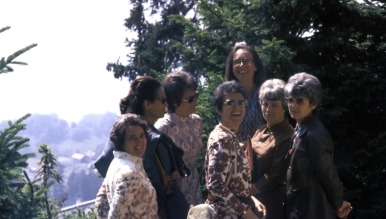
Nov 22, 2016 | Focolare Worldwide
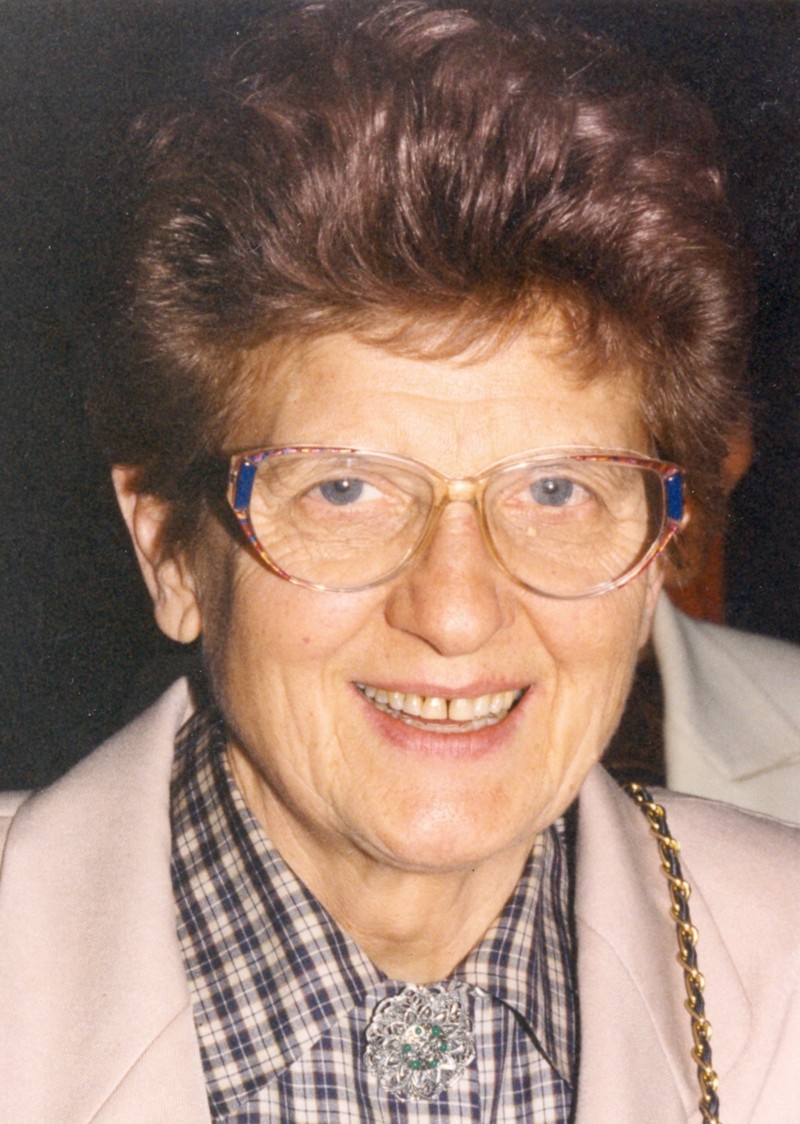 “Let us accompany Aletta with joy and immense gratitude to the house of the Father. We couldn’t have a better model of one who “gave her life unsparingly” to God, as today’s daily thought suggests.” This is how Maria Voce informed the members of the Focolare Movement of the death of Vittoria Salizzoni, who passed away peacefully on the morning of 22 November, a few days before reaching the age of 92 years. Vittoria Salizzoni was born in Martignano (Trent) on 27 November 1924. She was the third of 8 children born to Mary and David Salizzoni. She lived in France for 12 years where she had emigrated with her family. In 1941, she returned to Trento and on 7 January 1945, during World War II, she met Chiara Lubich, and remained close to her for many years.
“Let us accompany Aletta with joy and immense gratitude to the house of the Father. We couldn’t have a better model of one who “gave her life unsparingly” to God, as today’s daily thought suggests.” This is how Maria Voce informed the members of the Focolare Movement of the death of Vittoria Salizzoni, who passed away peacefully on the morning of 22 November, a few days before reaching the age of 92 years. Vittoria Salizzoni was born in Martignano (Trent) on 27 November 1924. She was the third of 8 children born to Mary and David Salizzoni. She lived in France for 12 years where she had emigrated with her family. In 1941, she returned to Trento and on 7 January 1945, during World War II, she met Chiara Lubich, and remained close to her for many years.

Aletta Salizzoni (right) with some of the first companions of Chiara Lubich
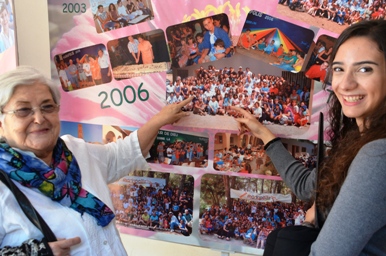
Nov 21, 2016 | Focolare Worldwide, Senza categoria
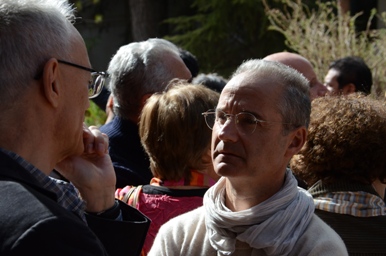 A country in which Christians are less than 1% of the population, Algeria was the first Muslim country to welcome the spirituality of unity in the mid-1960s. They were difficult years of transition and development in this strategic region. Here, the monks of Tibhirine are universally honoured as an example that transcends religious differences and points to the fraternal relationship that unites all the members of the human race. “Chiara Lubich had invited us not to stop in the face of the present difficulties,” Rosi Berolasi recalls. She spent 13 years in the focolare in Algiers. “Looking at it through her eyes, the experience we lived was charged with hope. She already saw the life that would later develop.” Rosi goes on to say: “Also the then bishop of Algiers, Cardinal Duval, had always encouraged us and today we are glad to say that there are Muslim men and women who have their own experience as members of the Focolare Movement.” In Tlemcen the 50th anniversary of the Focolare Movement’s arrival was celebrated last year at the beginning of November. Algeria opened the door to many other countries of North Africa and the Middle East. Archbishop Emeritus of Algiers, Archbishop Tessier, and Bishop of Orano, Bishop Vesco also attended the celebrations, along with Focolare co-president, Jesús Morán and people representing Focolare communities in several regions of the Middle East, inlcuding Syria. French focolarino, Pierre Le Vaslot, who now lives in Italy, remembered their arrival as if it was yesterday. He spoke at the current Mariapolis Centre which is named after Ulisse Caglioni (March 5, 1943 – September 1, 2003). Ulisse was one of those focolarini that spent their lives giving selfless witness to universal brotherhood ever since they arrived on October 5, 1966 in a Citroën that they had driven all the way from Paris.
A country in which Christians are less than 1% of the population, Algeria was the first Muslim country to welcome the spirituality of unity in the mid-1960s. They were difficult years of transition and development in this strategic region. Here, the monks of Tibhirine are universally honoured as an example that transcends religious differences and points to the fraternal relationship that unites all the members of the human race. “Chiara Lubich had invited us not to stop in the face of the present difficulties,” Rosi Berolasi recalls. She spent 13 years in the focolare in Algiers. “Looking at it through her eyes, the experience we lived was charged with hope. She already saw the life that would later develop.” Rosi goes on to say: “Also the then bishop of Algiers, Cardinal Duval, had always encouraged us and today we are glad to say that there are Muslim men and women who have their own experience as members of the Focolare Movement.” In Tlemcen the 50th anniversary of the Focolare Movement’s arrival was celebrated last year at the beginning of November. Algeria opened the door to many other countries of North Africa and the Middle East. Archbishop Emeritus of Algiers, Archbishop Tessier, and Bishop of Orano, Bishop Vesco also attended the celebrations, along with Focolare co-president, Jesús Morán and people representing Focolare communities in several regions of the Middle East, inlcuding Syria. French focolarino, Pierre Le Vaslot, who now lives in Italy, remembered their arrival as if it was yesterday. He spoke at the current Mariapolis Centre which is named after Ulisse Caglioni (March 5, 1943 – September 1, 2003). Ulisse was one of those focolarini that spent their lives giving selfless witness to universal brotherhood ever since they arrived on October 5, 1966 in a Citroën that they had driven all the way from Paris.  Upon their arrival the three focolarini – Pierre, Ulisse and Salvatore Strippoli – found themselves standing in front of the abandoned Benedictine Monastery that needed to be rebuilt. It had been constructed in the 1950s by German Abbot, Dom Walzer, who had been driven out of German for refusing to welcome Hitler at the Abbey of Beuron. The monastery is built against a mountain, at 900 metres and a few steps away from the tomb of Sufi mystic, Sidi Boumedienne, who left a strong spiritual imprint on the local region and beyond. The location is a perfect setting for gathering, hospitality and dialogue. It’s peaceful and serene. An experience of presence and sharing life began at the Dar es Salam centre in Tlemcen with people from the city. “It was a joy for us in Orano, to see the monastery brought back to life,” says the then young priest Theirry Becker. “But who are these focolarini? Nobody has ever heard of them. They’re neither priests nor monks, yet they live in community. They came to live unity and to make unity come alive in the people around them. I listened to them talk about their ideal, about Chiara Lubich, from whom I began to learn more about the spirituality. They immediately got to work, and Ulisse soon transformed the whole house.” Those were years of constant experiences, such as the contact with Imam Barkat. The focolarini had helped him save his little son, taking him to hospital in the middle of the night and insisting with the doctors. It would be this very Imam and father of the little one, to go to the focolare to give courses on the prophetic Hadiths and offer correct explanations of their spiritual writings. There were also very moving words from the first young people who were regulars at the focolare in Tlemcen in the 1960s – Mourad, Bouziane and Farouk. Now they are happily married with children of their own, and the new generations are carrying forward the ideal which they were the first to believe in. Maria Chiara De Lorenzo
Upon their arrival the three focolarini – Pierre, Ulisse and Salvatore Strippoli – found themselves standing in front of the abandoned Benedictine Monastery that needed to be rebuilt. It had been constructed in the 1950s by German Abbot, Dom Walzer, who had been driven out of German for refusing to welcome Hitler at the Abbey of Beuron. The monastery is built against a mountain, at 900 metres and a few steps away from the tomb of Sufi mystic, Sidi Boumedienne, who left a strong spiritual imprint on the local region and beyond. The location is a perfect setting for gathering, hospitality and dialogue. It’s peaceful and serene. An experience of presence and sharing life began at the Dar es Salam centre in Tlemcen with people from the city. “It was a joy for us in Orano, to see the monastery brought back to life,” says the then young priest Theirry Becker. “But who are these focolarini? Nobody has ever heard of them. They’re neither priests nor monks, yet they live in community. They came to live unity and to make unity come alive in the people around them. I listened to them talk about their ideal, about Chiara Lubich, from whom I began to learn more about the spirituality. They immediately got to work, and Ulisse soon transformed the whole house.” Those were years of constant experiences, such as the contact with Imam Barkat. The focolarini had helped him save his little son, taking him to hospital in the middle of the night and insisting with the doctors. It would be this very Imam and father of the little one, to go to the focolare to give courses on the prophetic Hadiths and offer correct explanations of their spiritual writings. There were also very moving words from the first young people who were regulars at the focolare in Tlemcen in the 1960s – Mourad, Bouziane and Farouk. Now they are happily married with children of their own, and the new generations are carrying forward the ideal which they were the first to believe in. Maria Chiara De Lorenzo

Nov 20, 2016 | Non categorizzato
 I thought I knew everything “As a priest, I thought I knew how to judge everything. One day I was invited to celebrate Mass at a retreat of some committed young people. During the rites they explicitly made a pact to be ready to give their lives for each other. I was shocked! Would I have been able to do such a thing? All that I knew it seemed, although not useless, was insufficient to be a true Christian. How many things were neglected in the name of studies? How many omissions were justified with some effort I thought was important! Those young people have changed my life.” (RP – France) Before the offering “After moving into the new village, the friendship that was born with a family in the neighbourhood greatly helped us to insert ourselves into the new environment, even helping the children get to school. There was mutual esteem.The children of that family called us uncle and auntie and so did our children also address them that way. Unfortunately, in time the relationship became a bit strained and the children of these neighbours began to greet us with a formal “Good morning”. It could not go on like this also because we belonged to the same parish. One Sunday at Mass, the Gospel passage reminded us that before making an offering at the altar, it would be well to reconcile oneself with the brother. My wife and I looked at each other and we decided to act accordingly. After Mass, we approached those neighbours and asked their forgiveness if we had offended them in some way. After a moment of awkwardness, we hugged each other.” (AT – Hungary) She was another person “In the hospital where I work as a gynecologist, a woman known as a prostitute was admitted. Other patients and even some nurses tried to avoid her. Noticing her isolation, I gave her particular attention and this encouraged others to also talk to her and give her some help. The same sad story of her life attracted attention and benevolence. In just a few days, she already seemed another person. When she was discharged from the hospital, she thanked me saying, “True healing is not physical. Life starts again in another way.” (MS – Poland)
I thought I knew everything “As a priest, I thought I knew how to judge everything. One day I was invited to celebrate Mass at a retreat of some committed young people. During the rites they explicitly made a pact to be ready to give their lives for each other. I was shocked! Would I have been able to do such a thing? All that I knew it seemed, although not useless, was insufficient to be a true Christian. How many things were neglected in the name of studies? How many omissions were justified with some effort I thought was important! Those young people have changed my life.” (RP – France) Before the offering “After moving into the new village, the friendship that was born with a family in the neighbourhood greatly helped us to insert ourselves into the new environment, even helping the children get to school. There was mutual esteem.The children of that family called us uncle and auntie and so did our children also address them that way. Unfortunately, in time the relationship became a bit strained and the children of these neighbours began to greet us with a formal “Good morning”. It could not go on like this also because we belonged to the same parish. One Sunday at Mass, the Gospel passage reminded us that before making an offering at the altar, it would be well to reconcile oneself with the brother. My wife and I looked at each other and we decided to act accordingly. After Mass, we approached those neighbours and asked their forgiveness if we had offended them in some way. After a moment of awkwardness, we hugged each other.” (AT – Hungary) She was another person “In the hospital where I work as a gynecologist, a woman known as a prostitute was admitted. Other patients and even some nurses tried to avoid her. Noticing her isolation, I gave her particular attention and this encouraged others to also talk to her and give her some help. The same sad story of her life attracted attention and benevolence. In just a few days, she already seemed another person. When she was discharged from the hospital, she thanked me saying, “True healing is not physical. Life starts again in another way.” (MS – Poland)

 130 representatives of 40 Movements and Christian Communities from 14 European countries and 8 languages. These are the numbers from a three-day Together for Europe meeting held at the Focolare Movement International Centre, Castel Gandolfo, Italy. “We heard about the Paris attacks on year ago during our annual meeting in Holland,” Beatriz Lauenroth recalls. “Those and other events that are leading to fragmenation in Europe, show the need for encounter and working together for unity.” Many of the participants underscored this need, such as German Elke Pechmann from the Offensive Junger Christen: “Together for Europe is not an extra luxury, it’s not merely something more. It’s a noteworthy investment in the present and especially the future of Europe.” Moscow representative Larisa Musina from the Transfiguration Fellowship of Minor Orthodox Brotherhoods, Saint Philaret underscored the importance of deepening our knowledge of one another in order to increase dialogue: “We need to widen the dialogue between countries of the East and the West. Together with other Eastern European countries we Russians also have much to give to the West.” Switzerland made the voice of the young be heard: “The five of us young people representing Jacksonville Association of Health Underwriters (JAHU),” Selomi Zürcher explained, “feel that the future of Europe is also of concern to us. We value the experience and wisdom of our elders. And we ask them to have faith in us, and to learn from us as well. Thus the Europe of our forefathers will also be the Europe of the sons and daughters.”
130 representatives of 40 Movements and Christian Communities from 14 European countries and 8 languages. These are the numbers from a three-day Together for Europe meeting held at the Focolare Movement International Centre, Castel Gandolfo, Italy. “We heard about the Paris attacks on year ago during our annual meeting in Holland,” Beatriz Lauenroth recalls. “Those and other events that are leading to fragmenation in Europe, show the need for encounter and working together for unity.” Many of the participants underscored this need, such as German Elke Pechmann from the Offensive Junger Christen: “Together for Europe is not an extra luxury, it’s not merely something more. It’s a noteworthy investment in the present and especially the future of Europe.” Moscow representative Larisa Musina from the Transfiguration Fellowship of Minor Orthodox Brotherhoods, Saint Philaret underscored the importance of deepening our knowledge of one another in order to increase dialogue: “We need to widen the dialogue between countries of the East and the West. Together with other Eastern European countries we Russians also have much to give to the West.” Switzerland made the voice of the young be heard: “The five of us young people representing Jacksonville Association of Health Underwriters (JAHU),” Selomi Zürcher explained, “feel that the future of Europe is also of concern to us. We value the experience and wisdom of our elders. And we ask them to have faith in us, and to learn from us as well. Thus the Europe of our forefathers will also be the Europe of the sons and daughters.”  One question which kept coming up in the presentations, personal conversations and work groups was – what the path forward should be for Together for Europe and there were several concrete suggestions. They were all steps that could be taken by individual Movements and Communities during 2017, both for their own countries and Together for Europe. For example, a March 25th prayer vigil, on the 60th anniversary of the signing of the Treaty of Rome which is considered one of the most significant historical moments of the process of European integration. It will gather many European political figures in Rome. Together for Europe would also like to be there and has already sent a document to the politicians regarding “our idea of Europe, and we hope that similar vigils can be held in European cities where we have a presence.” Another initiatitve that the participants felt to be important was that spaces for encounter and sharing be created. “We want to increase the communion among the Movements at local levels and offer even more events for individual cities.” The impressions people shared during the closing express the enthusiasm they experienced in being together. A young woman from Germany said: “I’d like more young people to catch my enthusiasm for Together for Europe, and I hope that next year there will be even more of us.” A young man from Slovenia: “When we get home we’ll update all the other Movements in Slovenia about what we experienced here. We’ll also invite a Catholic and Lutheran bishop, so that they may know that the laity is also with the Church and stepping into action for the better future of the continent.” With the meeting of Castel Gandolfo participation in Together for Europe has expanded to Religious Congregations and ancient charismatic communities. The next Friends of Together for Europe event is planned for November 9-11, 2017 in Vienna, Austria.
One question which kept coming up in the presentations, personal conversations and work groups was – what the path forward should be for Together for Europe and there were several concrete suggestions. They were all steps that could be taken by individual Movements and Communities during 2017, both for their own countries and Together for Europe. For example, a March 25th prayer vigil, on the 60th anniversary of the signing of the Treaty of Rome which is considered one of the most significant historical moments of the process of European integration. It will gather many European political figures in Rome. Together for Europe would also like to be there and has already sent a document to the politicians regarding “our idea of Europe, and we hope that similar vigils can be held in European cities where we have a presence.” Another initiatitve that the participants felt to be important was that spaces for encounter and sharing be created. “We want to increase the communion among the Movements at local levels and offer even more events for individual cities.” The impressions people shared during the closing express the enthusiasm they experienced in being together. A young woman from Germany said: “I’d like more young people to catch my enthusiasm for Together for Europe, and I hope that next year there will be even more of us.” A young man from Slovenia: “When we get home we’ll update all the other Movements in Slovenia about what we experienced here. We’ll also invite a Catholic and Lutheran bishop, so that they may know that the laity is also with the Church and stepping into action for the better future of the continent.” With the meeting of Castel Gandolfo participation in Together for Europe has expanded to Religious Congregations and ancient charismatic communities. The next Friends of Together for Europe event is planned for November 9-11, 2017 in Vienna, Austria.



 “Let us accompany Aletta with joy and immense gratitude to the house of the Father. We couldn’t have a better model of one who “gave her life unsparingly” to God, as today’s daily thought suggests.” This is how
“Let us accompany Aletta with joy and immense gratitude to the house of the Father. We couldn’t have a better model of one who “gave her life unsparingly” to God, as today’s daily thought suggests.” This is how 

